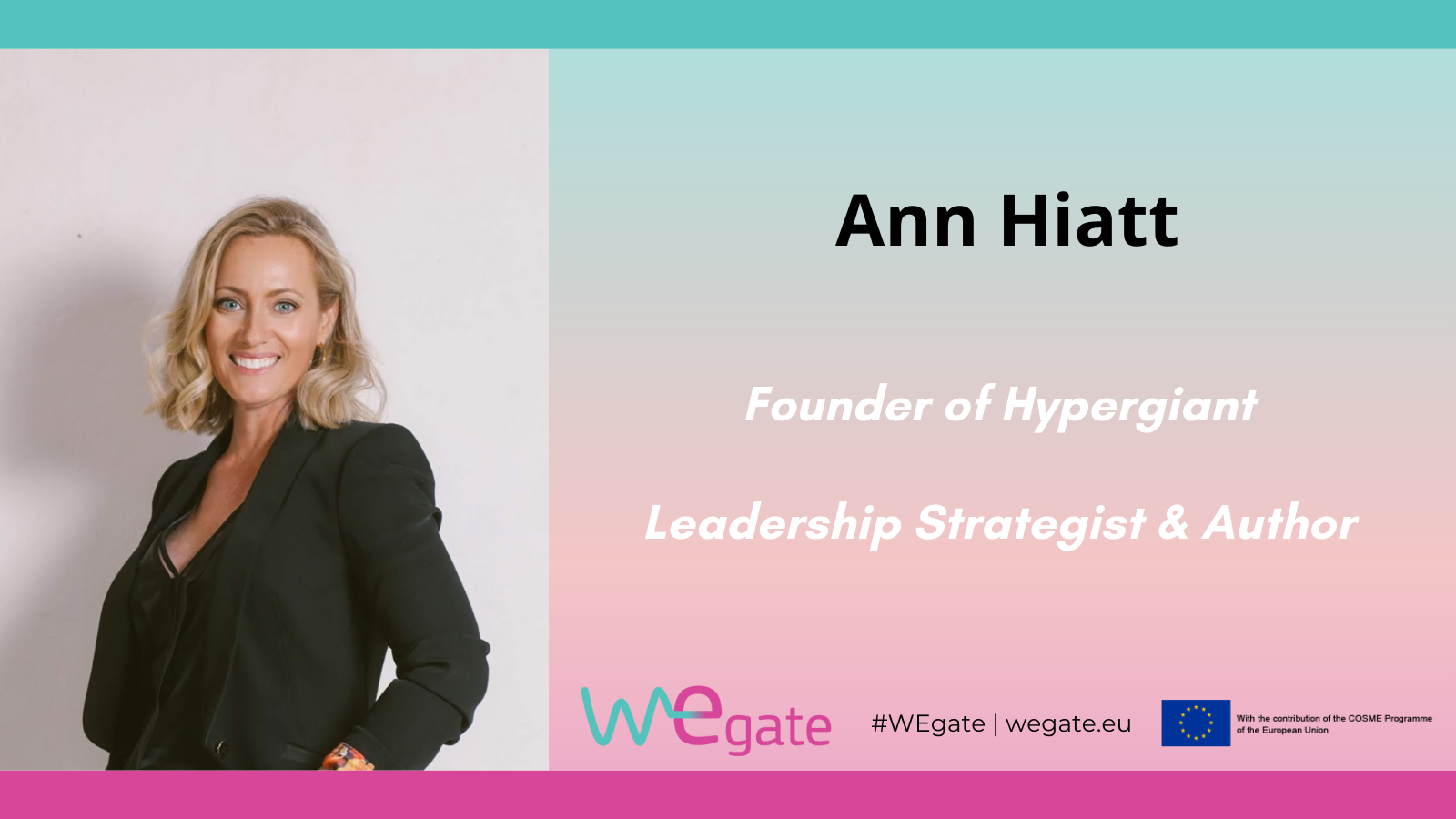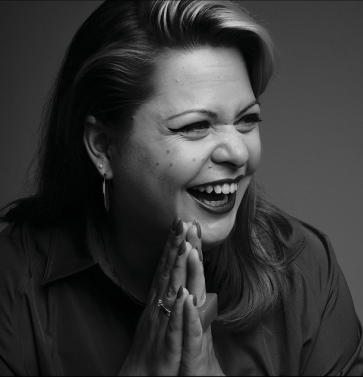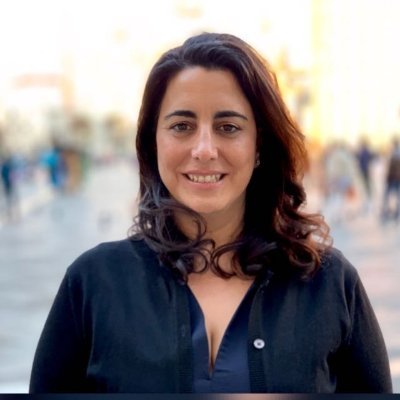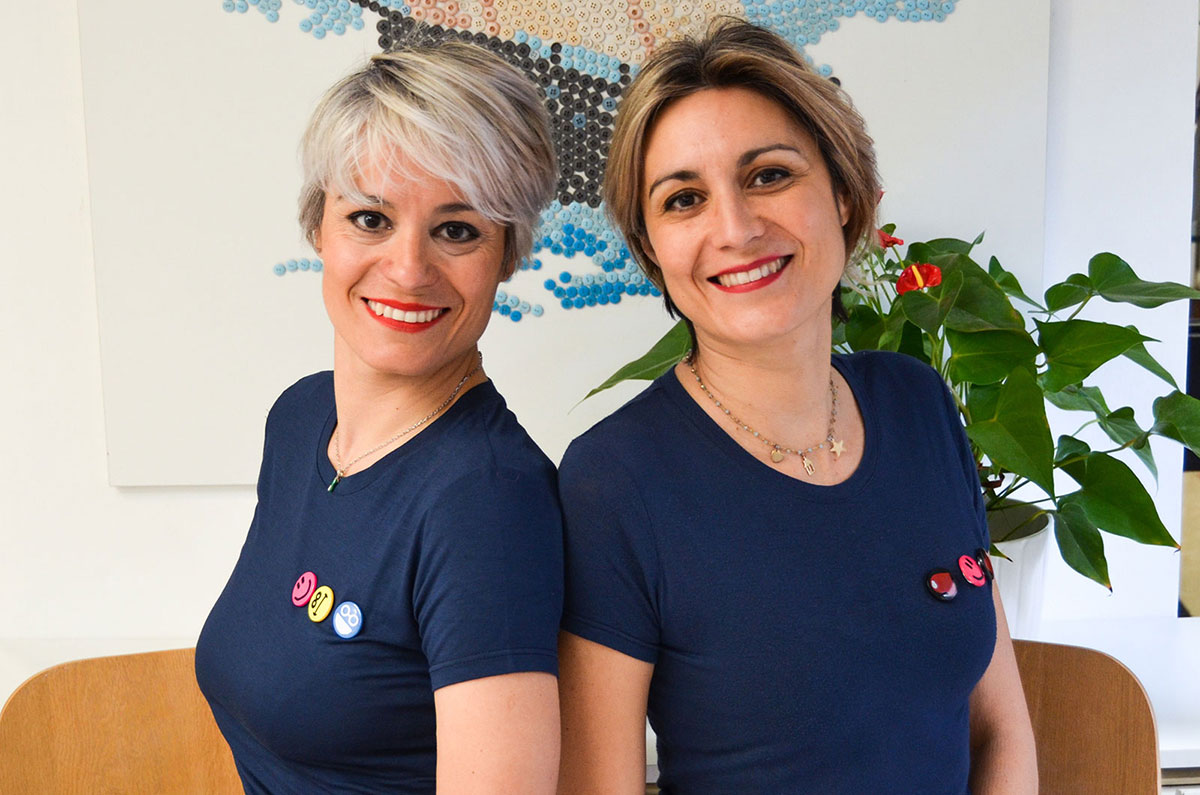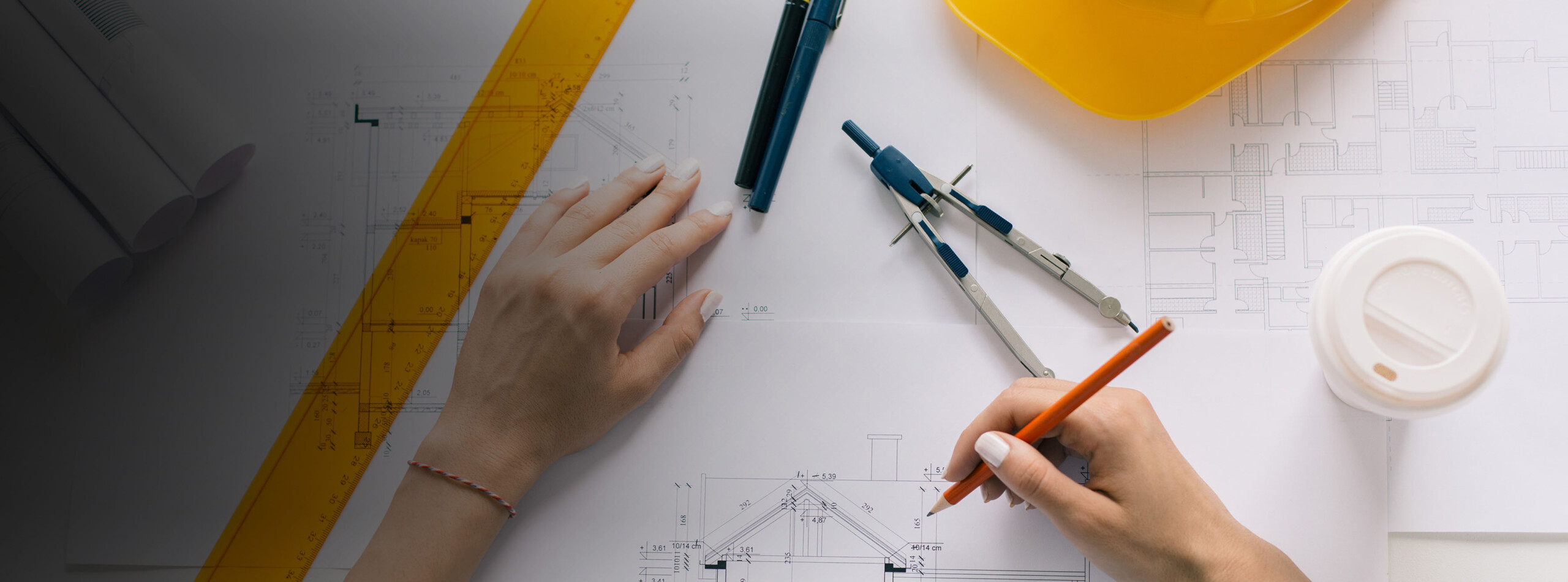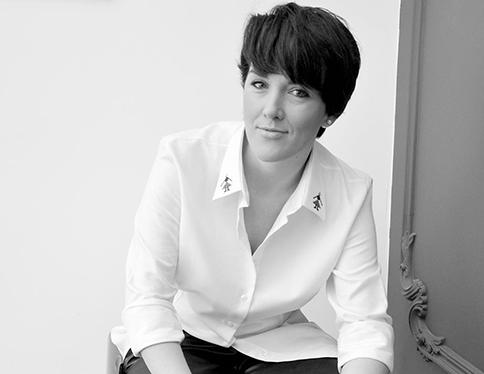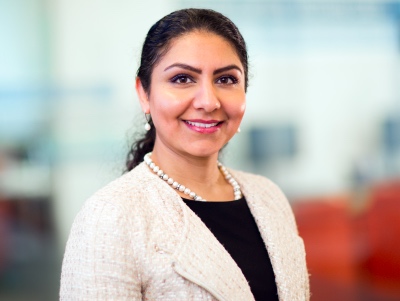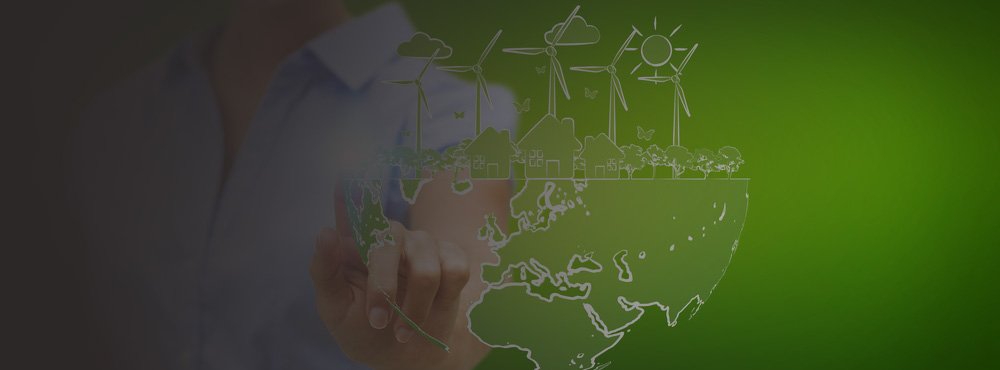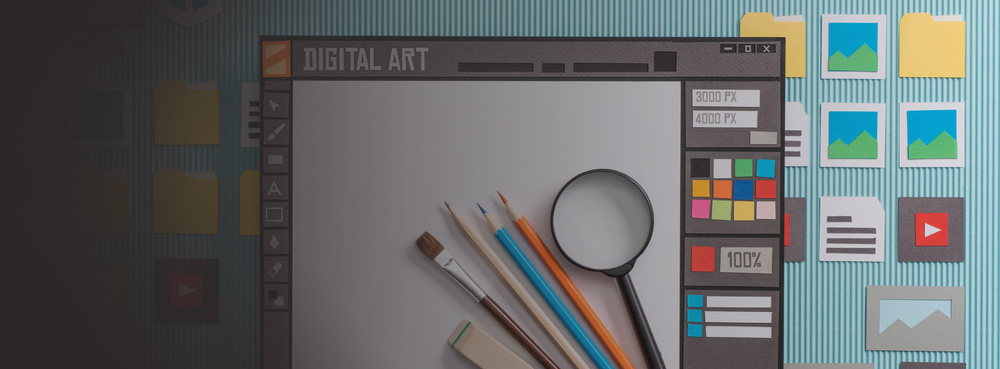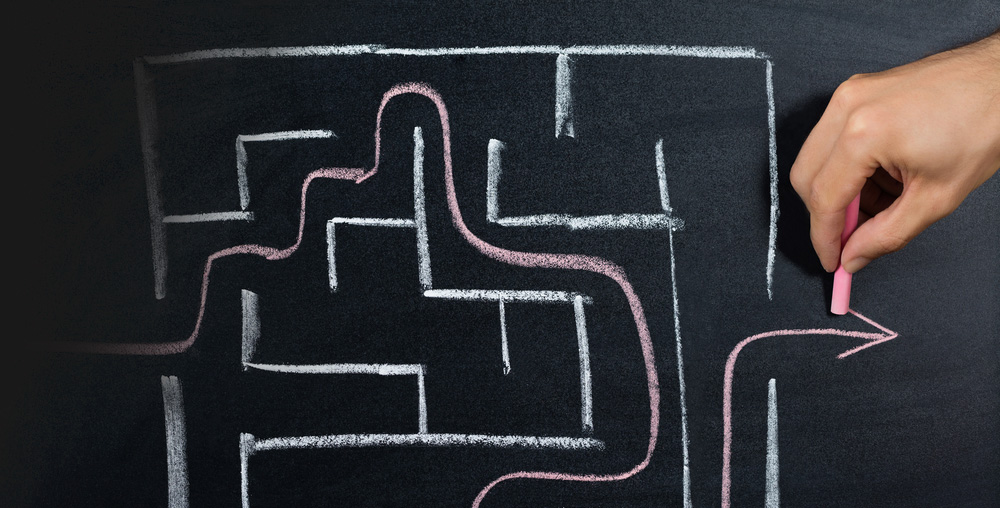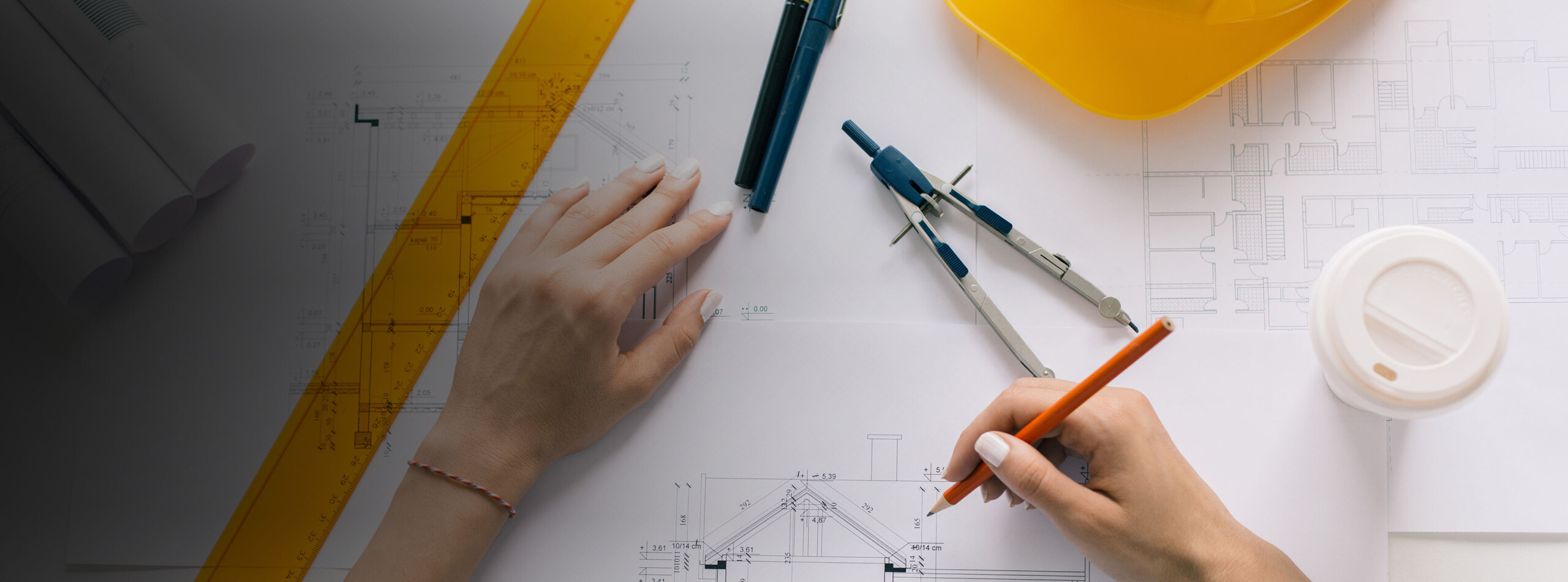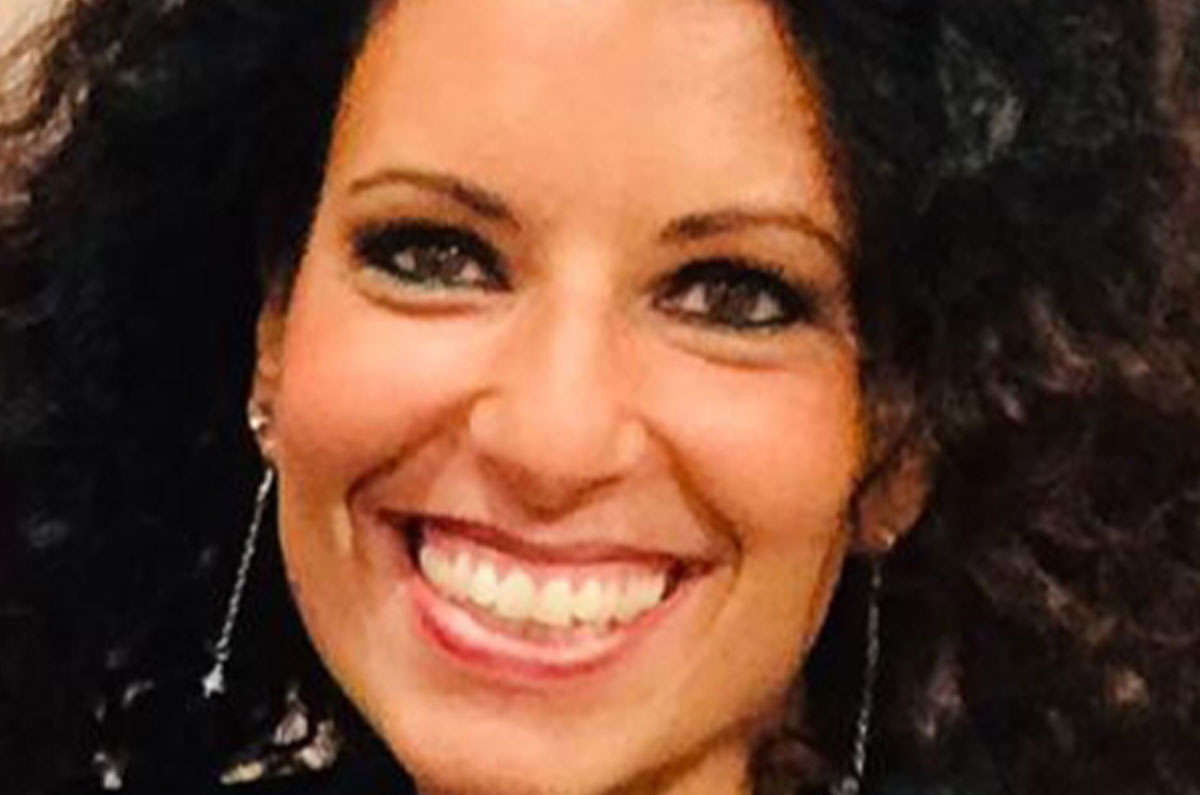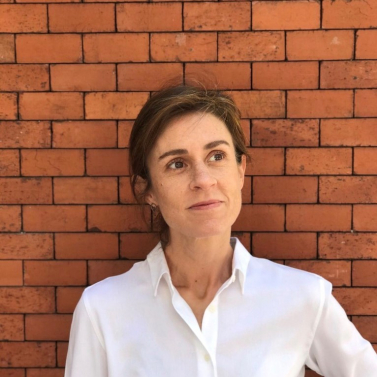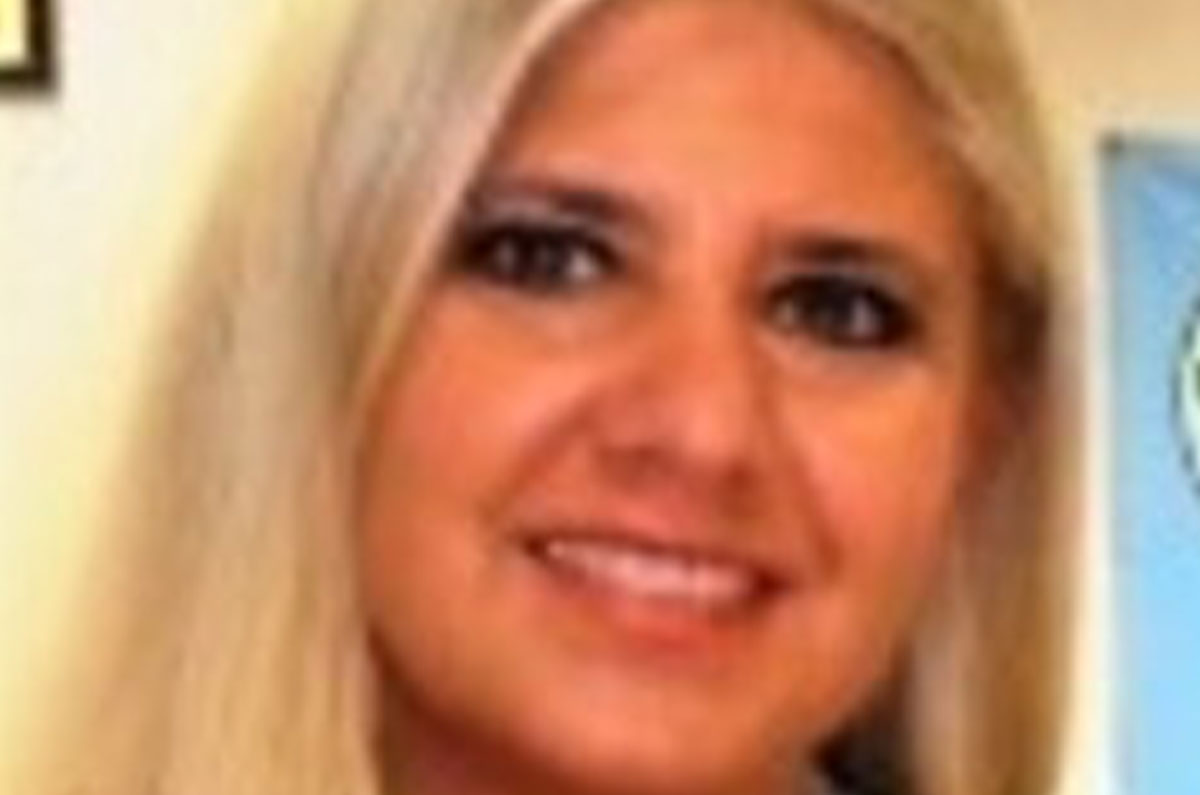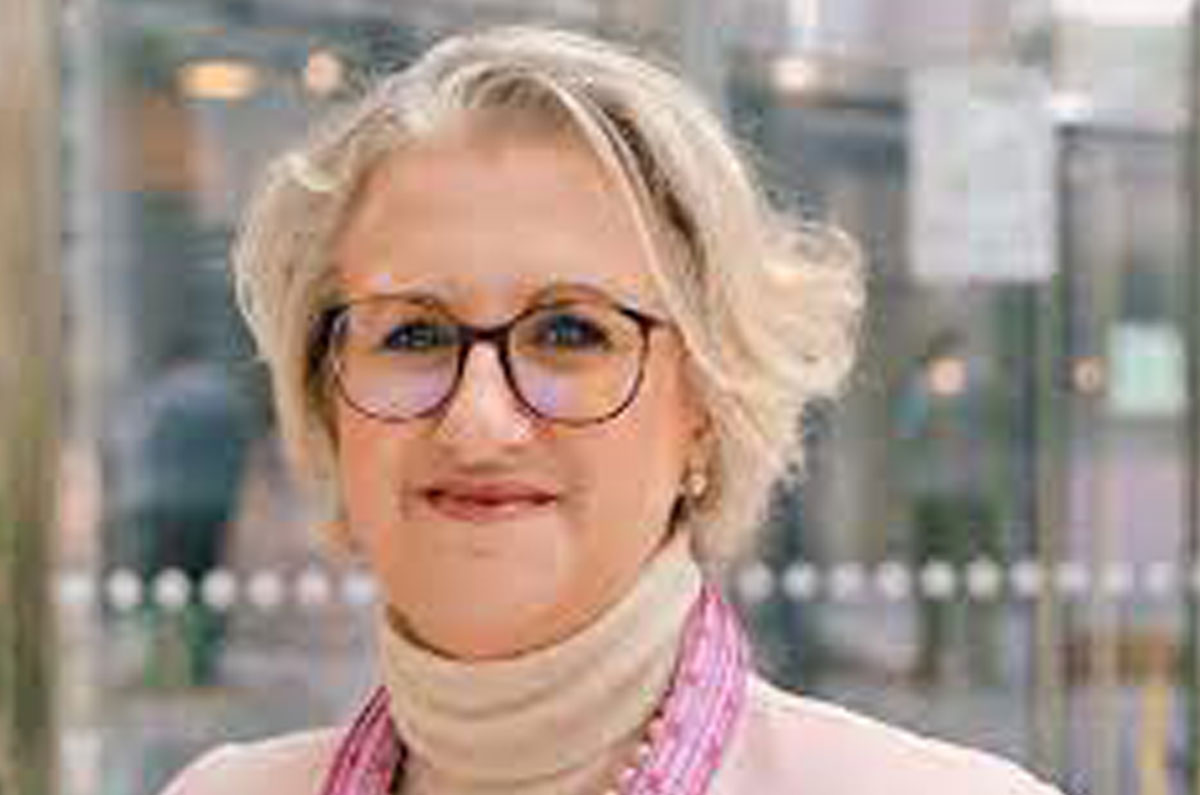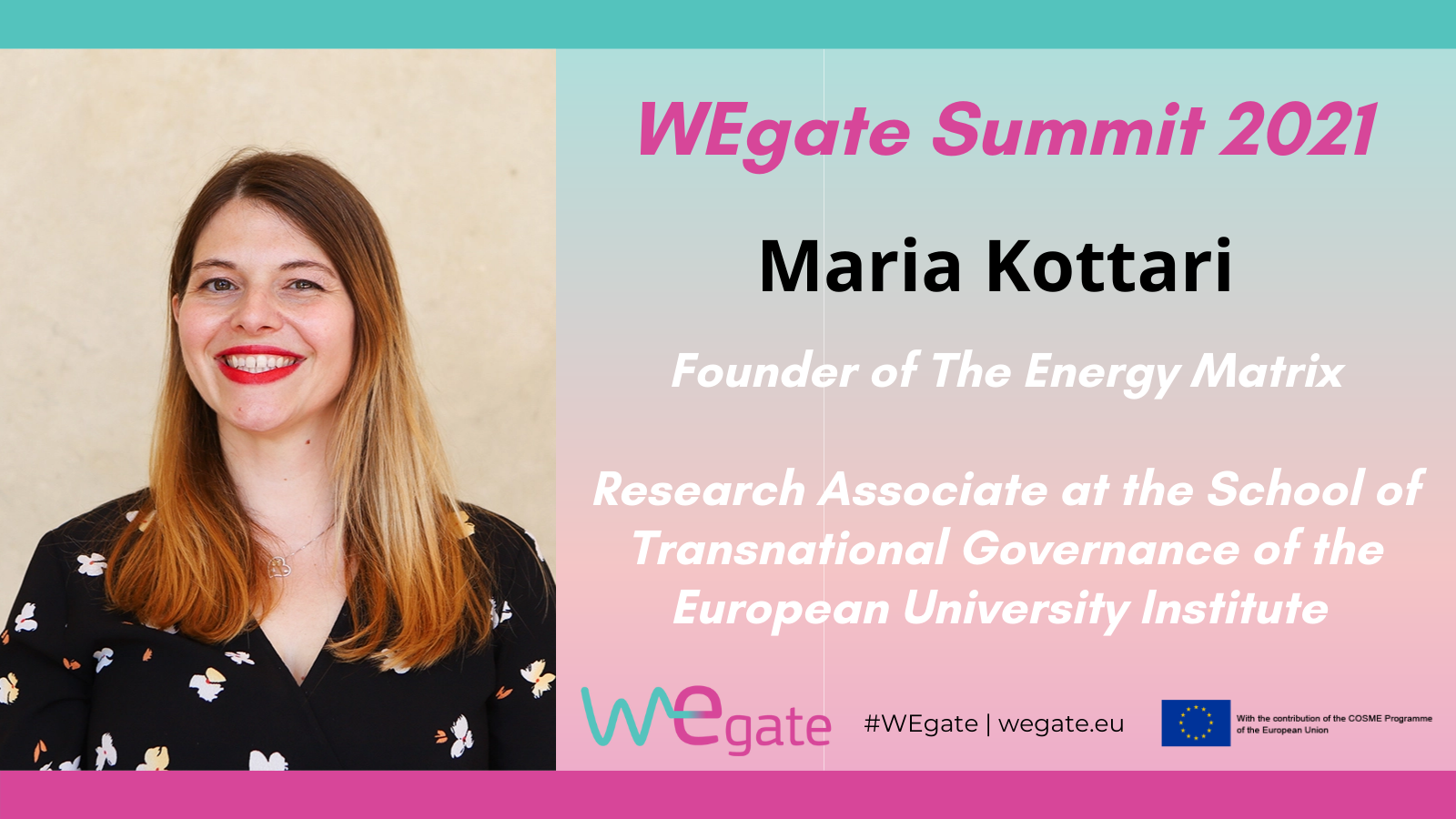
Maria Kottari
Founder,The Energy Matrix
Meet Maria Kottari, Founder of The Energy Matrix, and read about her entrepreneurial journey, the obstacles she has overcome, what the “Matrix” means and her gender perspective on climate governance
“The role of women as energy consumers and active players in a decentralized energy system will be focal for the EU in achieving its energy transition faster and through an inclusive process.”
The “journey”
I was flirting with the idea of starting my consultancy since I have finished my Ph.D. However, I knew that I have to cross a certain professional path first to “reach” the right moment of making the step. Apart from the obvious reasons of getting professional experience, building my network, and see how things materialize rather than analyzing them from a theoretical perspective, I wanted to test myself. Testing in the sense of understanding the working patterns that would enable me to reach my full potential but, also make me feel empowered in continuing the career path I have chosen. After spending some years working for the European Commission’s Joint Research Centre in the field of the energy transition, with a focus on low-carbon energy technology innovation, and being in parallel involved in the academia and civil society on the same topics, I have already had a solid working experience, a wide network across different sectors but, most importantly, the maturity to choose I would rather work independently.
The obstacles
Starting your consultancy entails many risks and first of all financial insecurity. I have launched my consultancy during the COVID-19 pandemic and without savings. I admit that was highly risky but, still not a frivolous movement as my determination was strong enough to face practical insecurities. In the meantime, although I have stayed in the same professional cycle, I was again a beginner. There were many other consultants out there working on projects I was dreaming to design or get involved in, and I was at the starting point. However, I did not start from “zero”. I have gradually learned to convince potential partners and organizations that I can channel my knowledge and experience in consultancy projects. I was also lucky enough to start a remote, part-time position as Research Associate-Climate in the School of Transnational Governance at the European University Institute. This extremely fulfilling and challenging position enriched and expanded my knowledge in the fields of climate change governance and climate action, while there is a constant feedback loop between this position and the projects I am involved in through my consultancy.
The “Matrix”
The energy transition process and climate change politics are so rich, they evolve constantly, they encompass different sectors and perspectives, and, as such, conflicting interests to name a few reasons I got involved in the field. I named my consultancy “The Energy Matrix” not only acknowledging the key role the energy sector has in taking the necessary steps and actions to limit global warming but also accentuating the need of integrating different approaches and sectors in the process. Through “The Energy Matrix” I am involved in projects that focus on the societal aspects of energy transitions and climate change governance. I aim to assist in balancing the political, economic, and social factors in the decision-making process, for the benefit of optimal solutions design and implementation. I am thrilled to see social innovation emerging from the -many times tough- decisions citizens should make changing energy consumption patterns or adapting to climate change consequences.
Gender perspective in the energy transition and climate change governance
Gender issues and women empowerment represent a focal area of interest for my consultancy. Having faced obstacles pursuing a career in the energy sector, which is traditionally male-dominated and gathers professionals having a so-called STEM background, I have developed a keen interest in gender mainstreaming and inclusiveness in all related areas e.g. decision-making process, employment, etc. In the meantime, I have started focusing my research on the role of women in the energy transition process as well as how climate change affects the women population disproportionally. Through my consultancy, I have been involved in projects that develop tools to empower women in becoming adaptive and resilient in climate adaptation and mitigation processes and projects that aim at creating a more inclusive environment in the engagement of more women in the energy transition. The later is also very relative to the EU’s green growth and digital transformation agenda. The role of women as energy consumers and active players in a decentralized energy system will be focal for the EU in achieving its energy transition faster and through an inclusive process.




